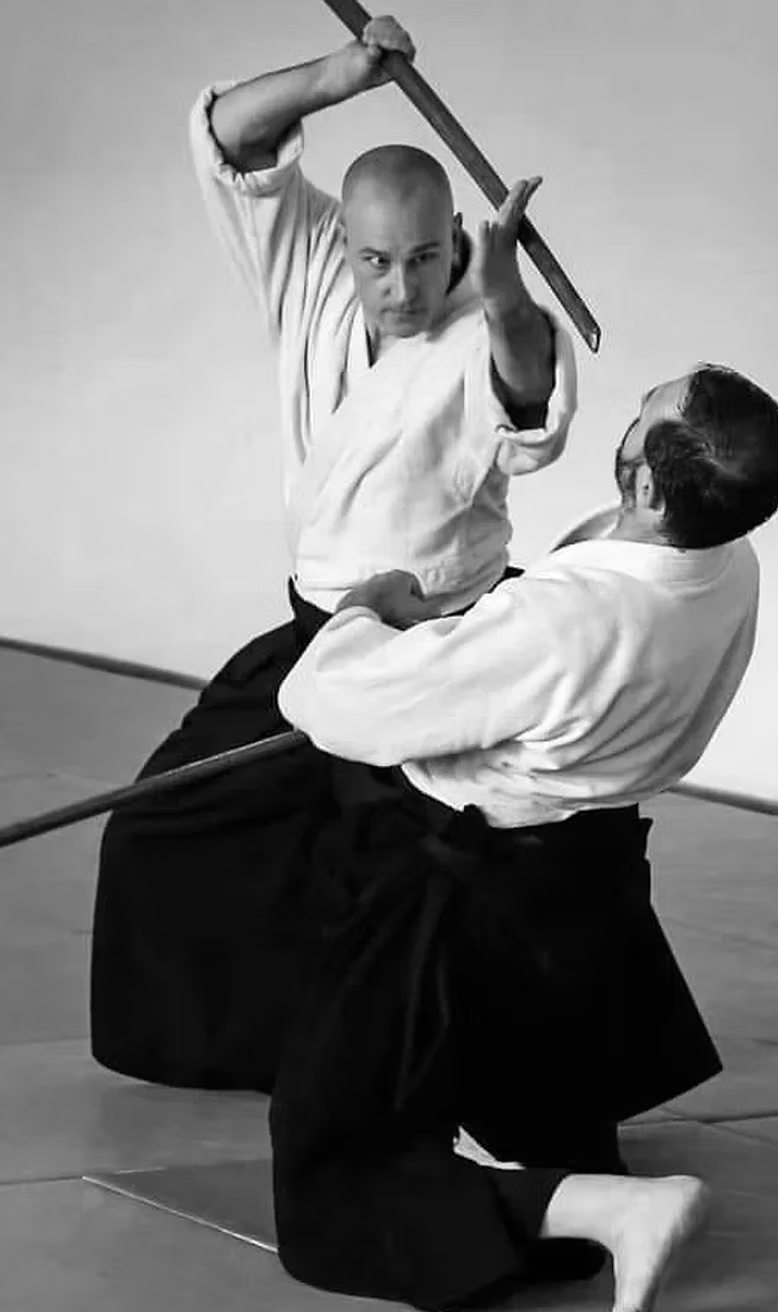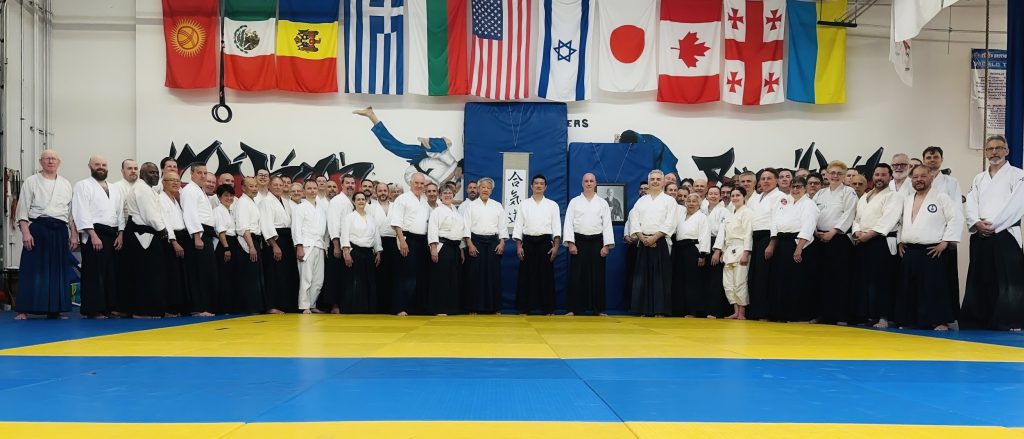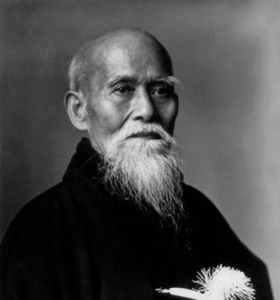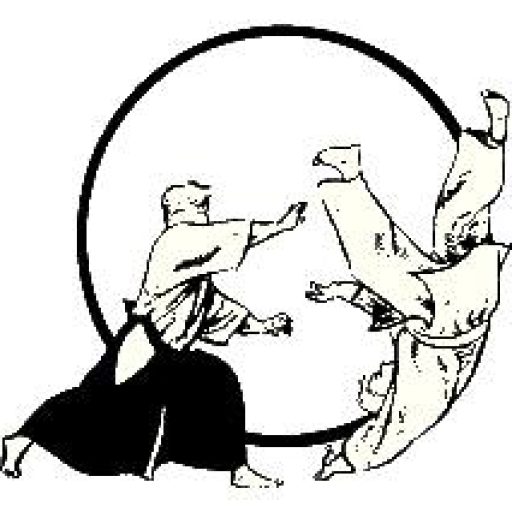Great Lakes Aikido traces its roots to the teachings of Fumio Toyoda Shihan (1947–2001), a renowned Aikido master and lay Zen teacher who brought a unique integration of martial arts and Zen practice to the United States. One of Toyoda Shihan’s closest students, Meido Moore Shihan, trained under him as an uchideshi (live-in apprentice) for six years before the passing of Toyoda Shihan.
Moore Shihan later founded Shinjinkai Japanese Martial Arts Organization in Chicago and then Genseikan Dojo in Prospect Heights, Illinois. His teaching emphasizes both technical precision and the spiritual depth of Aikido, reflecting his dual role as a martial artist and abbot of Korinji Rinzai Zen monastery in Wisconsin.

In 2002, Michael Malitsky Sensei began training under Meido Moore Shihan and eventually took over as Dojo Cho and Head Instructor of Genseikan Dojo which later became Great Lakes Aikido. With a background in multiple Aikido organizations and a deep interest in biomechanics and movement efficiency, Malitsky Sensei helped evolve the dojo’s approach while staying rooted in its traditional lineage. Great Lakes Aikido, continuing the legacy of Toyoda Shihan and Moore Shihan by offering a practice that blends martial discipline, mindful movement, and personal growth.
Great Lakes Aikido has a dedicated teaching team, including Matt Lowry Sensei and Daniel Epstein Sensei, who bring decades of experience and a shared commitment to the art. Classes are offered at multiple locations to serve a wider community, including at Cohen Brothers Judo in Vernon Hills, Illinois. Together, the instructors foster an inclusive and rigorous training environment where students of all levels can explore the physical and philosophical dimensions of Aikido.
Aikido Shimbokukai

Great Lakes Aikido is a member of Aikido Shimbokukai, an organization of instructors, dojos, and Aikido practitioners whose common bond is the practice and development of Aikido. This group strives to bring people together for the exchange of experiences and ideas through Aikido training, and to provide instruction and guidance while maintaining standards of instruction and training.
Aikido Shimbokukai is an Officially Recognized Organization (certificate here) by the Aikido World Headquarters (Hombu Dojo) and the Aikikai Foundation in Tokyo, Japan. We value our relationship with Aikido World Headquarters (Hombu Dojo) and the Aikikai Foundation, and strive to support them as best as possible, through training and other activities. Our members are committed to the study and training of the teachings of Ueshiba Morihei, the Founder of Aikido, as well as those of Ueshiba Kisshomaru Nidai Doshu, Ueshiba Moriteru Gendai Doshu, and Ueshiba Mitsuteru Hombu Dojo Cho.
Aikido
Aikido is a modern Japanese martial art developed by Morihei Ueshiba in the early 20th century. Inspired by his study of various martial arts and his deep spiritual beliefs, Ueshiba created Aikido as a means of self-defense that emphasizes blending with and redirecting an opponent’s energy, using fluid movement to neutralize attacks, rather than meeting force with force.
The philosophy of Aikido extends beyond physical techniques, emphasizing the development of a peaceful and compassionate mindset. Practitioners strive to cultivate a harmonious balance between mind, body, and spirit, promoting personal growth, self-discipline, and a deep respect for others. Aikido techniques are designed not only to protect oneself but also to enable the practitioner to resolve conflict with compassion.

Morihei Ueshiba, founder of Aikido
Morihei Ueshib, also known as O-Sensei, was a visionary martial artist whose life blended physical mastery with deep spiritual insight. Born in Japan in 1883, Ueshiba studied several traditional martial arts before developing Aikido—a discipline that emphasizes harmony, balance, and non-violent conflict resolution.
Inspired by his training and spiritual experiences, Ueshiba created Aikido not just as a method of self-defense, but as a path to personal growth and peace. His teachings focus on blending with an opponent’s energy, redirecting aggression, and cultivating inner calm. Today, Aikido is practiced worldwide, continuing Ueshiba’s legacy of strength through compassion.
